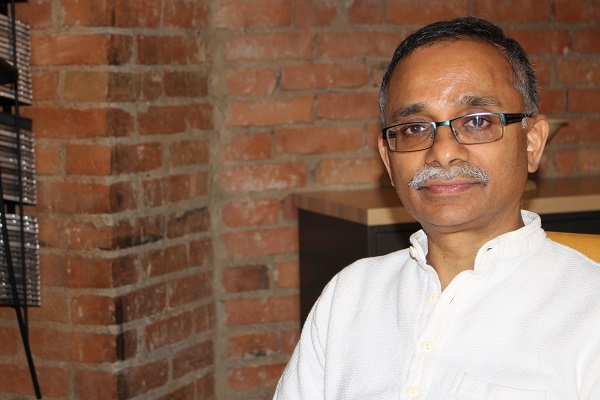Failure of Economic Plans behind BJP’s Pressure on Religious Minorities

“BJP seeks to limit the rights and resources of religious minorities independent of the extent of success in promoting economic development and offering effective governance. Its economic strategies have particularly failed over the past five years, and this has increased its inclination to emphasize Hindu cultural and political hegemony,” Narendra Subramanian, a Professor of Political Science at McGill University, told IQNA in an exclusive interview.
Right activitists in India have warned against Hindu nationalists' discriminations and pressures by against Muslims and the BJP's support for that in the past couple of years. To further shed light on the issue, IQNA has reached out to Subramanian who is of Indian origin to discuss the roots of these pressures.
Narendra Subramanian is Professor of Political Science at McGill University. He studies the politics of nationalism, ethnicity, religion, gender, and race in a comparative perspective, focusing primarily on India. Subramanian’s first book Ethnicity and Populist Mobilization: Political Parties, Citizens and Democracy in South India, Oxford University Press, 1999, examined why the mobilization of intermediate and lower status groups through discourses of language and caste reinforced democracy and tolerance in southern India.
His second book Nation and Family: Personal Law, Cultural Pluralism, and Gendered Citizenship in India, Stanford University Press, 2014, traced the course of the personal laws that govern family life among India’s major religious groups.
Here is the full text of the interview:
IQNA: Since Narendra Modi came to power in India, we have seen increasing pressure on religious and ethnic minorities in the country, especially Muslims. What is the reason for these pressures?
Subramanian: The pressure has been on religious minorities, primarily Muslims and Christians. The Hindu nationalist movement from which the ruling Bharatiya Janata Party emerged, has consistently defined India as a primarily/ exclusively Hindu nation and marginalized followers of religions originating outside South Asia.
While the BJP was the largest party in parliament between 1998 and 2004, it was constrained then by ruling in alliance with other parties. Since 2014 when Modi became the Prime Minister, the BJP has had an absolute majority of parliamentary seats, freeing it to act on its exclusionary inclinations toward especially Muslims and Christians.
IQNA: Why does the BJP insist on extremist Hindu nationalism in a country that has been known for the peaceful coexistence of followers of different religions?
Subramanian: India, like most other countries, includes forces of different social and political orientations. Some movements and parties have underlined the coexistence of different religious groups.
This was the case largely with the Indian National Congress (Congress party) which ruled India on its own or in alliance with other parties for much of the postcolonial era, although the party at times marginalized certain religious minorities.
The BJP and its predecessor organizations has consistently given Hindus social and political preeminence and sought to marginalize especially Muslims and Christians, while being more willing to accept followers of non-Hindu religions originating in South Asia – Sikhism, Buddhism, and Jainism.
IQNA: What was the main reason for BJP coming to power in India?
Subramanian: The main reason is its effective cultural and political mobilization of various Hindu groups, which has succeeded among more language and caste groups over the past decade. Other reasons include its organizational strength, the decline of the previously dominant Congress party, and the restriction of most other parties to certain regions of India.
IQNA: Some believe that the BJP's actions against Muslims and other religious minorities in India are due to the party's failure to solve India's economic and political problems. How true is this view?
Subramanian: The BJP seeks to limit the rights and resources of religious minorities independent of the extent of success in promoting economic development and offering effective governance. Its economic strategies have particularly failed over the past five years, and this has increased its inclination to emphasize Hindu cultural and political hegemony.
IQNA: What is the ideological basis of the Hindutva movement in India and why is it so popular in India?
Subramanian: Hindutva or the ideology of Hindu-ness, is built around the vision of India as a primarily or exclusively Hindu nation. This is both a cultural and political vision. V.D. Savarkar, an early influential Hindu nationalist leader, defined the Hindu with reference to cultural and territorial belonging – a view of India as fatherland and sacred land - rather than religious faith and practice.
While this view notionally includes non-Hindus who share this view, it in effect suspects the national loyalties of those whose religious sentiments tie them to events and stories outside India. Some Hindu nationalists such as Golwalkar, who led the Rashtriya Swayamsevak Sangh for over three decades, openly said that they wanted Muslims to always be second class citizens whose status would be similar to that of Jews in Nazi Germany.
IQNA: How do you see the future of India given the actions of the BJP?
Subramanian: The BJP is giving effect to its view of India as a primarily Hindu nation. It only polled 37.4% of the vote in the last national elections of 2019, yet got an absolute majority of parliamentary seats because the rest of the vote was split among a variety of parties.
The BJP remains the most effective party in mobilizing voters across India. The other parties either have more limited pockets of support or are organizationally weak, and have not effectively coordinated with one another to oppose the BJP. These circumstances make it likely that the BJP will continue in power although it has not effectively governed the country and development has declined over the past decade.
Interview by Mohammad Hassan Goodarzi
 Most Commented
Most Commented 


